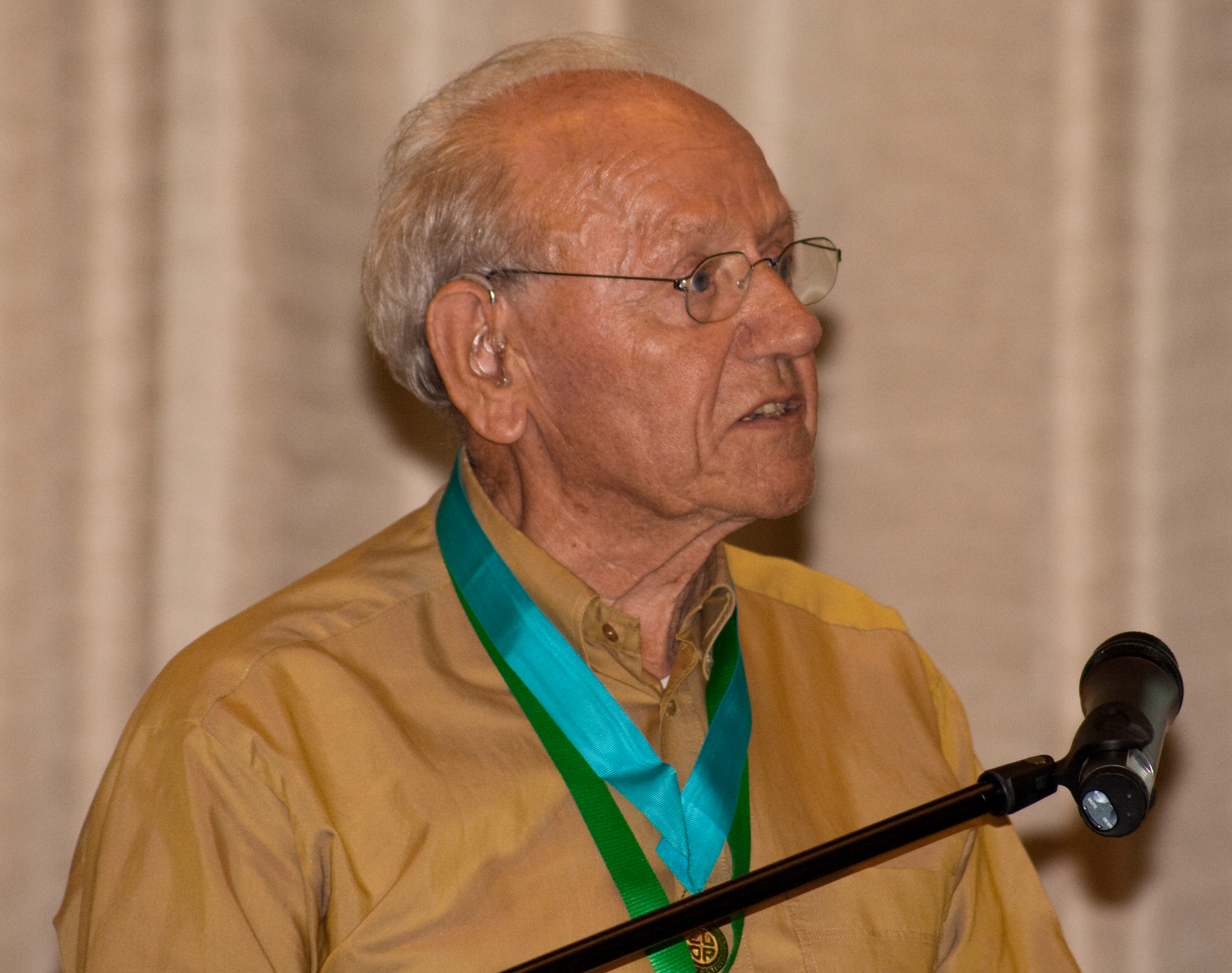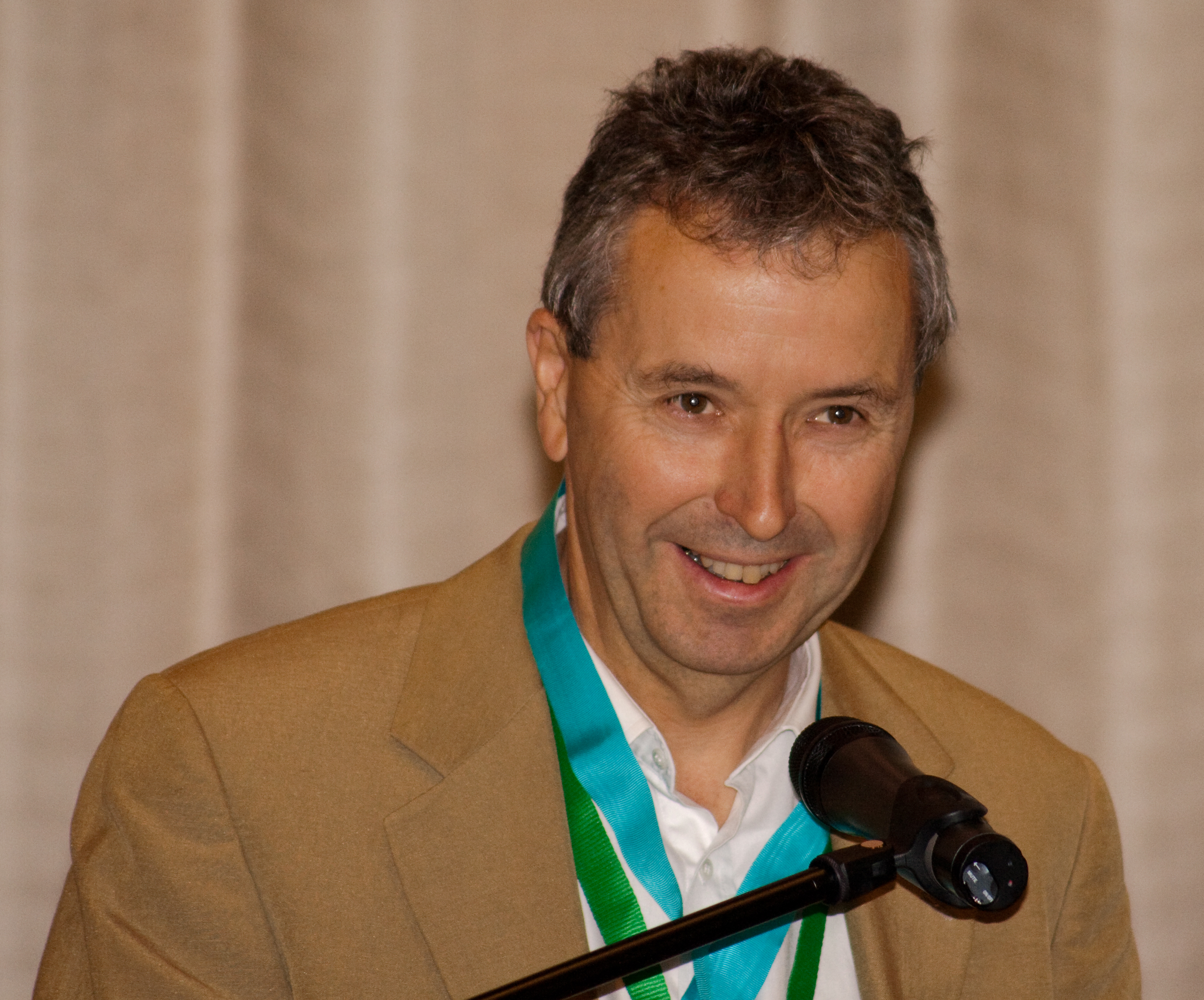|
EURO GOLD MEDAL 2009
Bonn, Germany, July 6, 2009
Mr Chairman, Dear Colleagues, Ladies and Gentlemen,
I have the honor to present to you the decision of the Jury of the EURO Gold Medal 2009, composed of the following scientists:
- Aharon Ben-Tal (Israel)
- Onno Boxma (The Netherlands)
- Georg Pflug (Austria)
- András Prékopa, chair (Hungary)
- Laurence Wolsey (Belgium).
Until April 30, 2009 altogether 12 nominations have been made for
four excellent OR scientists. After detailed study of the files and a
long discussion the Jury decided to award two of them EURO Gold Medals
2009.
The first laureate is not a young man, belongs to the first
generation of the international OR community, obtained basic results
that shaped the face of optimization already in its early history, was
a leading member of one of the first and world famous OR groups that,
in addition to methodological innovation, carried out a number of
successful applications. Ladies and Gentlemen, this OR scientist, EURO
Gold Medal laureate is
Jacques F. Benders,

Professor emeritus of Eindhoven University of Technology.
Jacques Benders was born on June 1, 1924 in Swalmen, The
Netherlands. He received his education from Bisschopelijk College and
the University of Utrecht. He received the doctor diploma in
mathematics, physics and mechanics in 1952.
In 1955 he joined the Royal Shell Laboratory in Amsterdam. He was
working on refinery planning and modeling problems. Through
collaboration with Shell California he became aware of the new results
in optimization. He implemented the simplex method to solve problems in
the petrochemical industry but observed that some of the real life
problems could more realistically be modeled by the introduction of
discrete variables. This lead him to the creation of the celebrated
Benders decomposition method for the solution of specially structured
mathematical programming problems. He published it in 1962, shortly
after the Dantzig-Wolfe decomposition method had been created. Benders’
method is variable oriented and allows for applications beyond linear
programming. It is widely applied in integer, nonlinear, combinatorial,
stochastic programming and network problems. In integer programming the
importance of Benders’ decomposition is comparable with Gomory’s
methods and is suitable for application in problems, where some of the
variables take their values from an arbitrary discrete set. Benders’
decomposition can efficiently solve specially structured linear and
mixed variable optimization problems of large sizes that are
non-tractable by other methodologies. It is one of the greatest
achievements in the history of optimization. Benders also produced
pioneering works in applications and software development. Theory,
modeling and software development form a harmonious unity in Benders’
activities.
In 1965 Benders became full professor at Eindhoven University of
Technology, where he spent about 26 years. He had great influence in
the Dutch OR community in many ways. He did not publish many papers but
among them there is one, about his decomposition procedure, that can
produce several hundred thousand hits on the internet in less than a
second. He is one of the greatest OR scientists who truly deserves the
EURO Gold Medal.
The second EURO Gold Medal 2009 laureate is specialist in
stochastics, where he also uses advanced optimization technique. He is
from the second generation of the OR community but he has created
groundbreaking methodology in stochastic network analysis, optimization
and their applications. This man is
Frank P. Kelly,

Professor of Christ's College and Cambridge University, UK.
Frank Kelly was born on December 28, 1950 in London. He received his
education in mathematics and economics from Durham University and
Emmanuel College, Cambridge. Since 1976 he has been teaching at various
institutions at the University of Cambridge.
As a Ph.D. student Kelly made path-breaking contributions to the
theory of queueing networks. His 1979 book on Reversibility and
Stochastic Networks has become a classic in the field. He is the editor
of several more books and the author of 100, often highly influential,
papers. His main results are on stochastic processes, their networks
and optimization, design and control of such large-scale systems with
applications in telecommunication and other engineering problems. His
works are inspired by performance issues in communication networks but
the concepts he has developed are widely applied in other disciplines.
During the years between 2003 and 2006 he was given part time
appointment as Chief Scientific Advisor of the Department of Transport
of the British Government, transferring his knowledge on routing and
pricing in communication networks to road traffic networks.
Kelly has served the OR community in many ways: as editor of a large
number of journals, as adviser of various industrial and academic
research institutes and as member of several academic and review
committees. He has, among others, received the Lanchaster Prize, the
Naylor Prize, the IEEE Koji Kobayashi Computers and Communications
Award and the INFORMS John von Neumann Prize of the Theory. He also has
several patents, which show that he was able to combine high level
theory and real world applications in an efficient way. He is one of
the greatest OR personalities and truly deserves the EURO Gold Medal
2009.
András Prékopa
EURO Gold Medal 2009 jury chair
|
